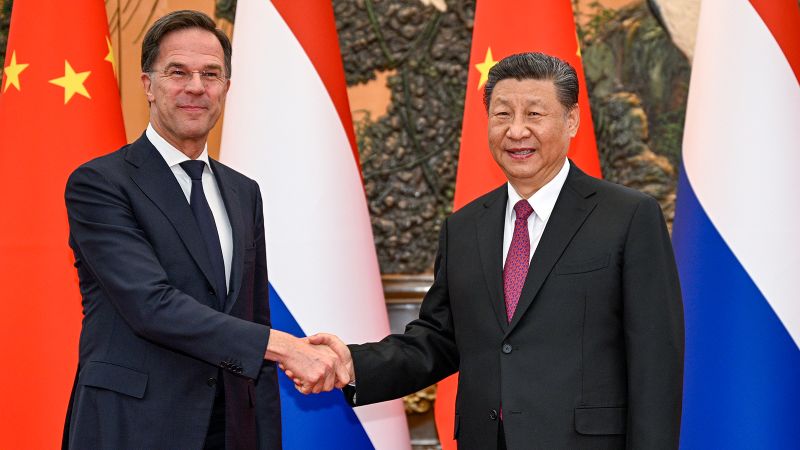Chinese leader Xi Jinping emphasized to Dutch Prime Minister Mark Rutte the importance of China’s scientific and technological development, stating that no force can stop it. This comes amid a chip war between China and Western countries, including the Netherlands, where ASML is located – the world’s sole manufacturer of extreme ultraviolet lithography machines essential for producing advanced semiconductors. Xi warned against creating technological barriers and cutting off industrial and supply chains as it would only lead to division and confrontation.
While there was no specific mention of ASML in the readout of the meeting, the company had previously been prohibited by the Dutch government from shipping some of its lithography machines to China. This move came after the United States escalated restrictions on the sale of semiconductors to China and urged its allies to follow suit. With its significant market dominance, ASML has become a symbol of the growing divide between China and the West over access to advanced technology.
Xi also stressed that the Chinese people have the legitimate right to development and expressed hope for the Netherlands to play a constructive role in promoting mutual understanding and relations between China and Europe. Chinese commerce minister Wang Wentao met with Dutch Trade Minister Geoffrey van Leeuwen on the same day, advocating for the normal trade of lithography machines without referencing ASML. Sales of ASML’s advanced chipmaking tools to China surged last year, ahead of the Dutch ban, with China accounting for a substantial portion of the company’s revenue.
Experts believe that China’s access to high-end chipmaking machines like those from ASML is crucial for its commercialization of 7-nanometer logic chips. Last year, Chinese manufacturer Huawei unveiled a phone powered by a 7-nanometer processor made by China’s Semiconductor Manufacturing International Corporation (SMIC), despite US export restrictions on the company. Analysts were surprised by Huawei’s ability to produce such a chip given the restrictions placed on Chinese access to foreign chip technology.
China has been aggressively purchasing semiconductor equipment to establish production lines for both advanced and mature nodes, according to industry experts. The country’s increasing investment in high-end chipmaking tools is seen as a strategic move to reduce reliance on foreign technology and bolster its domestic semiconductor industry. ASML’s sales to China have seen significant growth in recent quarters, reflecting China’s determination to secure the technological resources necessary to advance its semiconductor capabilities.
As the chip war intensifies between China and Western countries, ASML remains at the center of the controversy due to its crucial role as the sole manufacturer of extreme ultraviolet lithography machines. The tensions surrounding access to advanced technology highlight broader geopolitical and economic concerns about China’s technological development and global influence. The outcome of these disputes will likely have significant implications for the future of the semiconductor industry and international trade relations.


